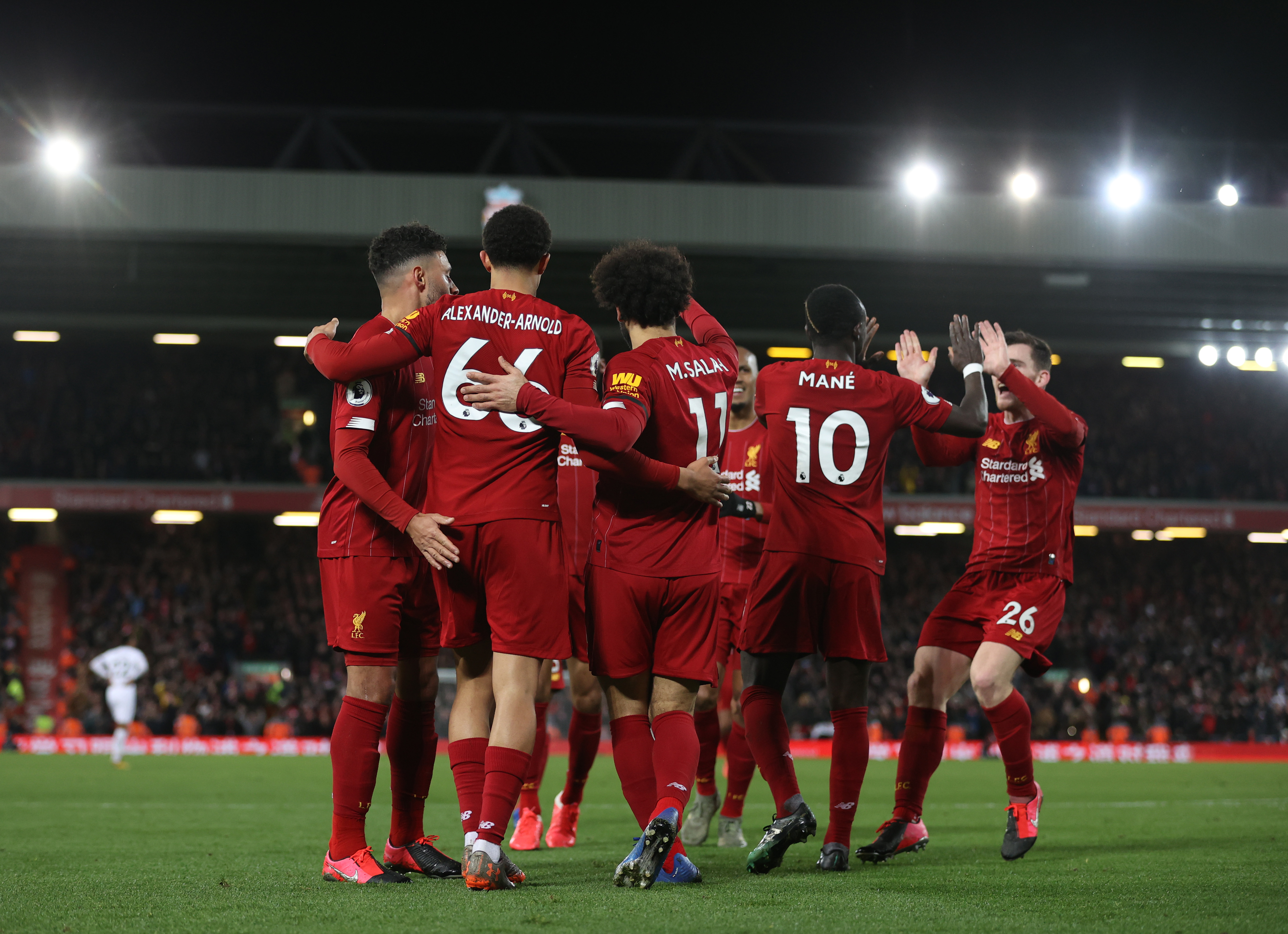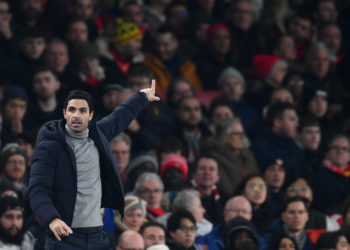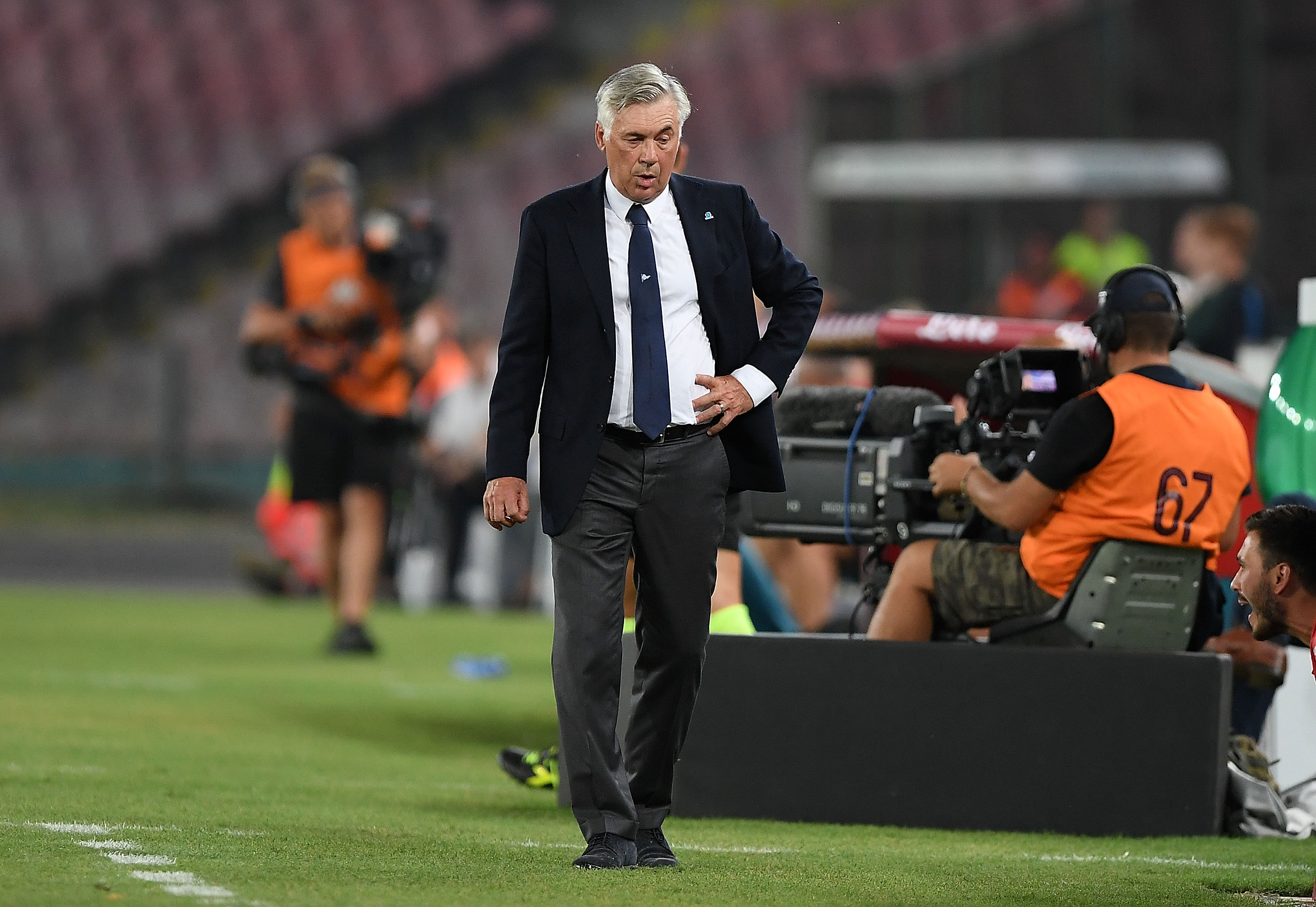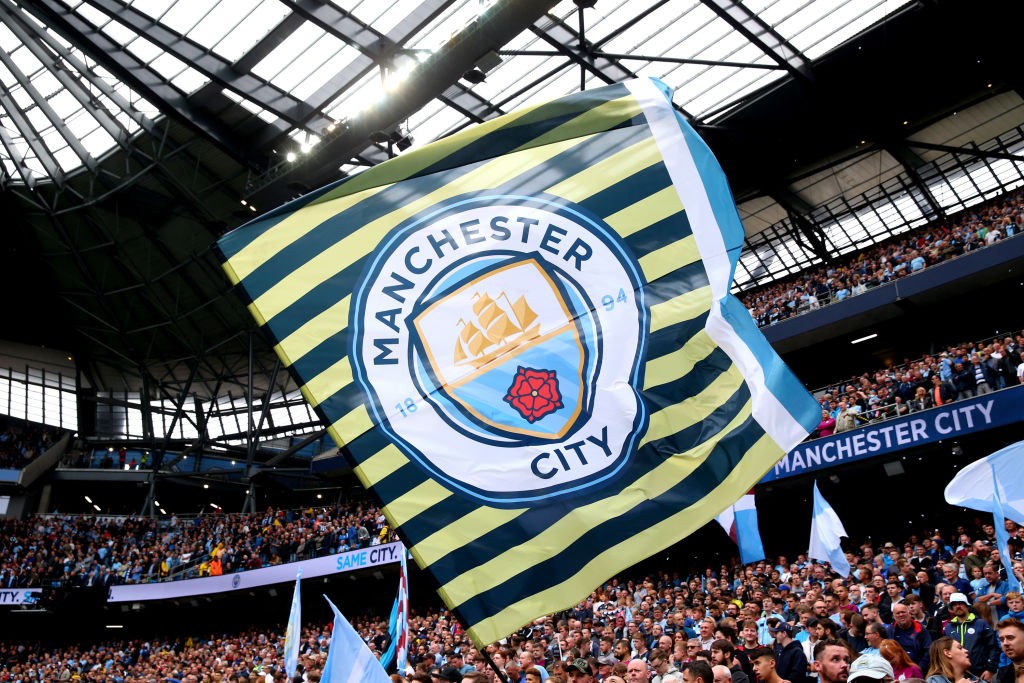Liverpool became champions of England for the first time in 30 years. We take a look at the defining moments that were the catalysts for this success.
It took a long, long time coming; perhaps, even too long for many, who might have lost any hopes of it ever happening. But, after three excruciating decades, the monkey is finally off of the backs of the Liverpool fans. The Reds are champions of England once again, and for the first time in the Premier League era.
No longer will Liverpool supporters be the butt of jokes from all quarters. This time, they can indulge in a bit of friendly banter of their own with rival fans, and then some. For their club has coasted to the Premier League title in a fashion no other side in the history of the competition ever has.
In fact, such has been Liverpool’s dominance this season that Manchester City’s record breaking campaign from two seasons ago when they breached the 100-point barrier, which was long thought to be nigh on impossible to be broken through, seems like a target too easy to reach for the Reds.
Liverpool have also become the earliest ever top-flight champions in English football history and with seven games still left to be played, several other records could be broken by Jurgen Klopp’s charges. However, their path to glory has been anything but straightforward.

From the time Klopp first took charge right till their crowning moment, Liverpool have had to overcome obstacles galore. From winning over disgruntled fans to overhauling an average squad; from defensive misgivings and howlers in goal to the “null and void” noise during the lockdown, the Reds have had to get past it all in order to get to this stage.
In the end, they leaped over the hurdles; they leaped over them all, as they finally ended their 30 years in the wilderness for good. But, what were the defining moments that paved the way for Klopp to do something seven managers before him could not, deliver the elusive Premier League title? Join us as we go back in time to take one more look at those instances.
Trusting Henderson and the Captain’s Grit
The time when a new manager is appointed at a club is a period that is riddled with uncertainty. The incoming figure has ideas that need to be implemented; sometimes, certain players do not fit in the ideology and the system this new manager employs.
The latter was certainly not the case when it came to Jordan Henderson, whose all-action style had helped him carve out a place for himself in the Liverpool first-team. However, just like a few years prior to Jurgen Klopp’s arrival in 2015, when Brendan Rodgers wanted to haul him off to Fulham to sign Clint Dempsey, the Sunderland-native was in a limbo.
This time around, it had nothing to do with his game or form. Instead, it was the increasingly frustrating tryst with injuries that were starting to take a toll on Henderson. Indeed the midfielder, who had been named the new Liverpool captain ahead of the season following the departure of Steven Gerrard, was on the sidelines when Klopp became the club’s new manager.
The 2015/16 season was to be one to forget for Henderson, who missed a large chunk of the campaign due to a myriad of fitness troubles, including an incurable foot problem known as ‘plantar fasciitis’. Having not featured regularly and playing in pain whenever he did, questions were being asked on Henderson’s position in the side.
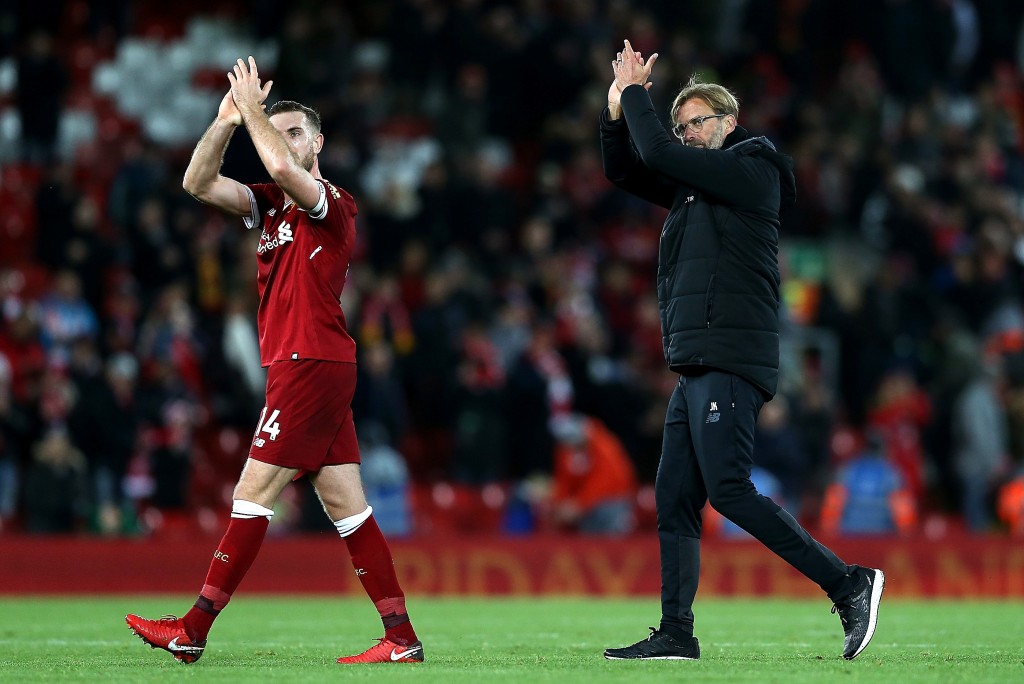
However, just as he had chosen to work hard and let his game do the talking when Rodgers wanted to use him as a makeweight in a deal for Dempsey, the Liverpool captain chose to put his head down, work on his fitness, showing incredible grit and determination to ensure that his fitness struggles became a thing of the past.
The key decision, though, was made by Klopp, who chose to stick by his then-unavailable captain, recognising that his unassuming and persevering nature was the perfect foil for the ideas he wanted to get through to a young squad. Klopp would even trust Henderson when his form plummeted, knowing well enough that as long as the effort was put in, the results would follow.
That has indeed proven to be the case, as Henderson fed off Klopp’s faith in him and has now become Liverpool’s Captain Fantastic, leading by example, filling in wherever his team and manager needs him and inspiring his teammates to deliver every ounce of performance they are capable of, and more. So much so, that after an incredible 2019/20 campaign so far, Henderson is touted to be crowned the Premier League Player of the Year.
That 2-2 Draw and Blocking Out the White Noise
It is only Klopp’s second month as the Liverpool manager. Liverpool are hosting West Bromwich Albion at Anfield. In what was to be quite an ill-tempered match, the Reds grab the lead through captain Jordan Henderson. However, the Baggies hit back soon after, equalising through Craig Dawson.
Midway through the second half, Jonas Olsson puts West Brom ahead with a fine header, having already seen a goal ruled out just before half-time. As the minutes tick away, it looks like Liverpool are going to suffer an embarrassing defeat at home. Such instances had often been followed by scores of fans walking out of Anfield, a problem that Klopp was desperate to fix; but, that could not have been done without results coming to his aid.
Right in the nick of time, with mere minutes left in the game, Divock Origi and a stroke of good luck came to Klopp’s rescue. The Belgian’s effort from range took a heavy deflection from Gareth McAuley and as the ball went into the back of the net, the Liverpool boss erupted into a wild celebration. At full-time whistle, Klopp refused to shake hands with Tony Pulis, having clashed with his opposing number on the touchline over the course of the game.
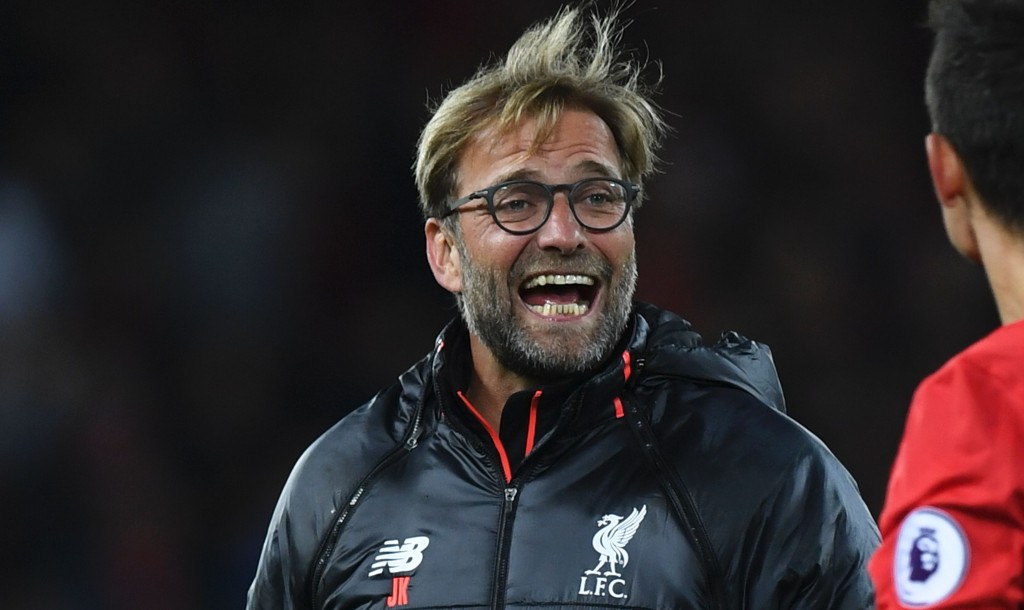
In the aftermath, West Brom winger James McClean branded the German to be a “bit of an idiot”, after he ran straight to his players at the end of the match. The celebrations that were to follow would trigger widespread trolling. Gathering his troops at the Kop End, Klopp saluted the fans in a way that was often seen when he was in-charge of Borussia Dortmund.
You would not blame people for ridiculing such a decision; after all, Liverpool had just drawn a game against a then-lower mid-table club like West Brom. Klopp, who claimed he felt alone when the crowd departed much before full-time during their loss to Crystal Palace, explained his decision later on, saying, “I really wanted from the first day that the people know about their importance.”
“In football, people always say it – that supporters are important – but then you don’t treat them like that so you have to make sure it’s really a healthy relationship. There was a big misunderstanding against West Brom. I wanted to say thank you to the supporters after that game so I took my team towards the Kop to do it and there was a discussion everywhere about it. For me, it was ‘why should we even discuss that?’”
“I wanted to show that we really we are one unit, 100 per cent one unit. That means I know I am responsible for the performance, but the people are responsible for the atmosphere. So it should be a win-win situation. When we play well, it’s easy to get the crowd going and when we don’t play well we need you to encourage us – get on your feet, tell us ‘come on’ – you have to be the stars then.”
Indeed, after seeing the bulk of the Anfield faithful leave the stadium much before full-time in several games over the course of his short reign till that moment, Klopp was not really celebrating a point, he was making one. That point was well-made by him and his players and slowly but surely, the fans started believing; slowly but surely, that belief translated into better performances from the Reds. So much so, that Anfield is now a fortress that is nigh on impossible to breach.
The purpose of the oft-trolled celebration was solved. As Phil Jackson famously urged his Chicago Bulls players over the course of the 1997/98 NBA season, when they completed an unthinkable second three-peat, whatever the outsiders say is white noise and that must be blocked if the players are to remain a tight-knit unit and perform to the best of their abilities.
That is exactly what Klopp helped his players do as well, as they ignored the mocking to progress as a team, showing that with togetherness and unity, he would have everyone onboard for the project he wished to complete successfully. Look where they are now.
Salah and the Completion of a Unique Attack
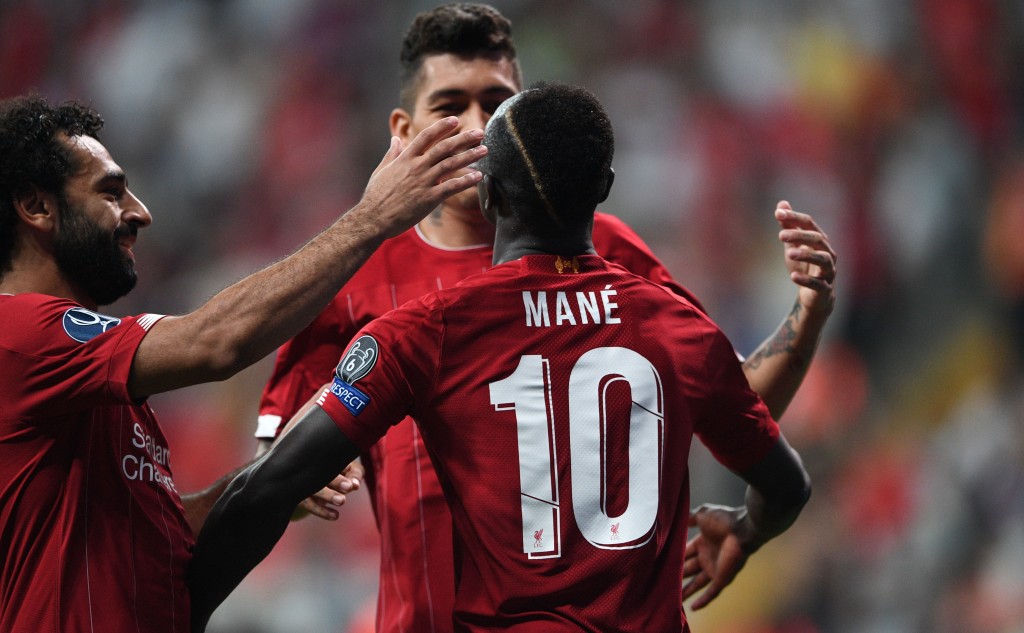
At the time when Klopp was named the new Liverpool manager, the look of their attack would likely have filled opposition defences in with loads of confidence. After all, Roberto Firmino was not the highly-praised asset he is for Liverpool right now. The Brazilian was often stuck out to the wings, which left him anonymous more often than not.
As for the rest of the attack, Philippe Coutinho was an inconsistent youngster, Daniel Sturridge had lost his step after a myriad of injuries, Divock Origi was still a squad option, Danny Ings was to start struggling with fitness issues and Christian Benteke was not managing to stamp his authority. So, it was clear that if Liverpool were to achieve anything, the attack had to be transformed.
So, ahead of the 2016/17 season, Klopp first moved Jordon Ibe and Benteke out of his squad before bringing in Sadio Mane and pushing Firmino into a more central position. However, over the course of the season, it became clear that Liverpool were hugely dependent on Mane for attacking returns. Signing another forward was imperative. The next decision would be a game changer.
In came Mohamed Salah in the summer of 2017 for £35 million, a fee that now looks like peanuts judging by the impact the Egyptian has made. In the very first Premier League game of the 2017/18 season, Salah, Mane and Firmino all scored, and the Merseyside club have not looked back since. Salah won the Premier League Golden Boot in his maiden campaign with the Reds before sharing the top prize with Mane last season.
Over the last three seasons, which have seen Liverpool be the single most consistent team in Europe, the terrific trio have scored 211 goals between them (92 for Salah, 65 for Mane and 54 for Firmino). With the trifecta scoring this consistently, goals have hardly been a problem for Klopp, especially with the supply chain being as effective as it is. More on it in the next section.
The Advent of One of the Best Full-Back Pairings in the World
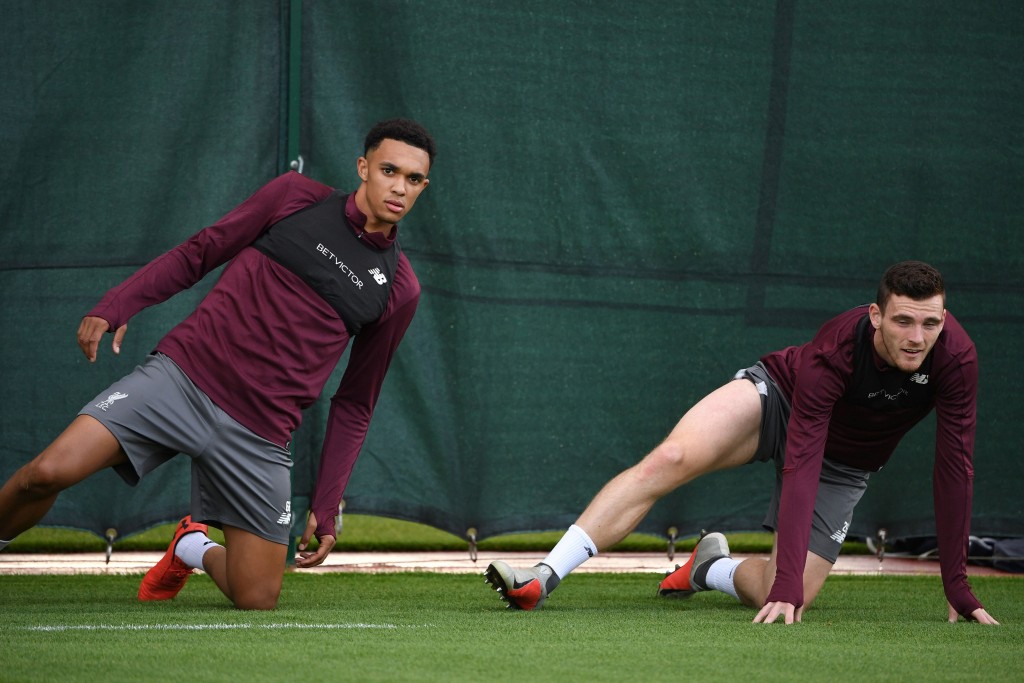
Salah, Mane and Firmino might have been top class for Liverpool since their attacking partnership was forged, but they would not be where they are right now without the influence of Liverpool’s chief playmakers. And unlike most clubs, these come in the form of two full-backs.
Yes, the game of football has changed drastically over the last decade, with full-backs having more attacking responsibility than ever before. No one, though, would have envisioned the scale of the impact that Trent Alexander-Arnold and Andrew Robertson would make for Liverpool.
Alexander-Arnold was a product of the Reds’ academy and was fast-tracked to the first-team squad due to Nathaniel Clyne’s fitness troubles. Robertson was brought in from relegated Hull City for a mere £7 million and was initially Alberto Moreno’s deputy amid doubts over whether he had what it takes to become a regular, something that seems to be unfathomable now.
Both slowly grew into Klopp’s plans, working hard on their game to earn their manager’s trust before gradually becoming indispensable. Both are now among Europe’s best playmakers and are constantly in the topmost echelon of the assists charts in the Premier League. Without them, a Liverpool side just cannot be imagined now.
Klopp’s gameplan plays into their strengths as much of the side sits narrow, providing them with ample space and time to wreak havoc by sending in dangerous crosses, deep into the box. In case an opportunity fails to present itself, the duo often exchange passes directly, in a bid to quickly open up play. The two of them staying forward is not scoffed at either, as the midfielders do well to cover the space in behind them.
Besides, Robertson is one of the most complete full-backs in the world, often making an impact on both ends of the pitch. Alexander-Arnold, on the other hand, has his own strengths, providing a great deal of threat from set-pieces too. The dependable duo for Liverpool, as evidenced by the 43 assists in the Premier League between them over the last two seasons. Simply mind boggling.
The Coutinho Sale and the Subsequent Squad Transformation
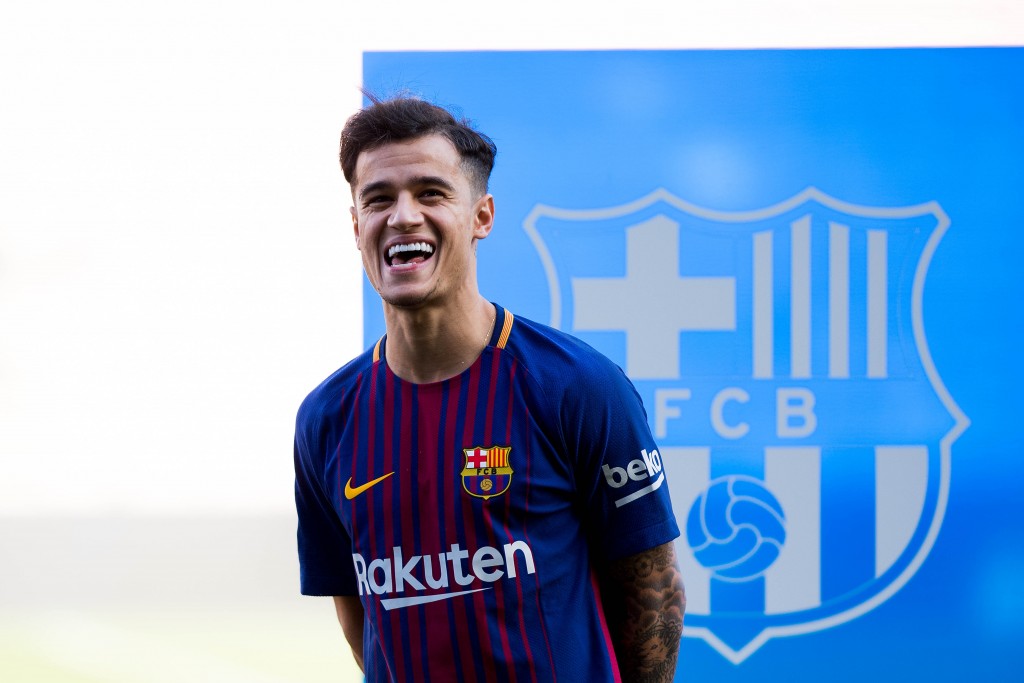
The whole Coutinho saga left a sour taste in the mouth for Klopp and Liverpool fans. Here was a player who had signed a new long-term contract with the Reds not too long ago, famously claiming that he was there to stay at Anfield for a long time. However, when Barcelona come calling with the underhanded way they do, very few players leave their clubs on good terms. Coutinho was no different either.
As the summer of 2017 approached, it had become crystal clear that Barcelona wanted their man, as they prepared to lay down the succession plan for Andres Iniesta. A £72 million bid was rejected by Liverpool that summer, before Barcelona had two further offers knocked back. Coutinho then submitted a transfer requested and allegedly faked injury. This is also when the Catalans got ugly, making “false claims” of the Reds slapping a £183 million price tag on Coutinho.
Eventually, Coutinho get his wish, as the January transfer window opened in 2018. This time around as well, it was hardly a straightforward move, as Nike controversially advertised Coutinho’s image on the back of a Barcelona shirt, despite Coutinho still being a Liverpool player at the time. In the end, Coutinho got his dream move, joining Barcelona at long last. In doing so, the playmaker inadvertently provided his best assist ever to Liverpool.
Coutinho and Liverpool’s trajectories have since gone in completely opposite directions. The Brazil international struggled to make a mark at Camp Nou and is currently on loan at Bayern Munich. The Reds, on the other hand, have the world at their feet, thanks in large part to the proceeds from the Coutinho sale.
Just before Coutinho left for Barcelona, Liverpool announced that they had finally landed Virgil van Dijk, in what was another contentious episode involving Southampton. The Dutch defender, who initially had his skeptics due to a then-world record £75 million price tag, would go on to transform the Liverpool defence, and in such a way that the Merseysiders are completely impregnable in more matches than not.
The kind of influence van Dijk has had is not just on a personal level, but on the entire defensive unit. He has definitively improved the likes of Joel Matip and Dejan Lovren, who have performed beyond levels few would have imagined them to have in a large chunk of games when they have started alongside the indomitable van Dijk. The proof is in the pudding too, Liverpool conceded 1.2 goals per game before van Dijk’s arrival. Since January 2018, that number is down to 0.6 per game.
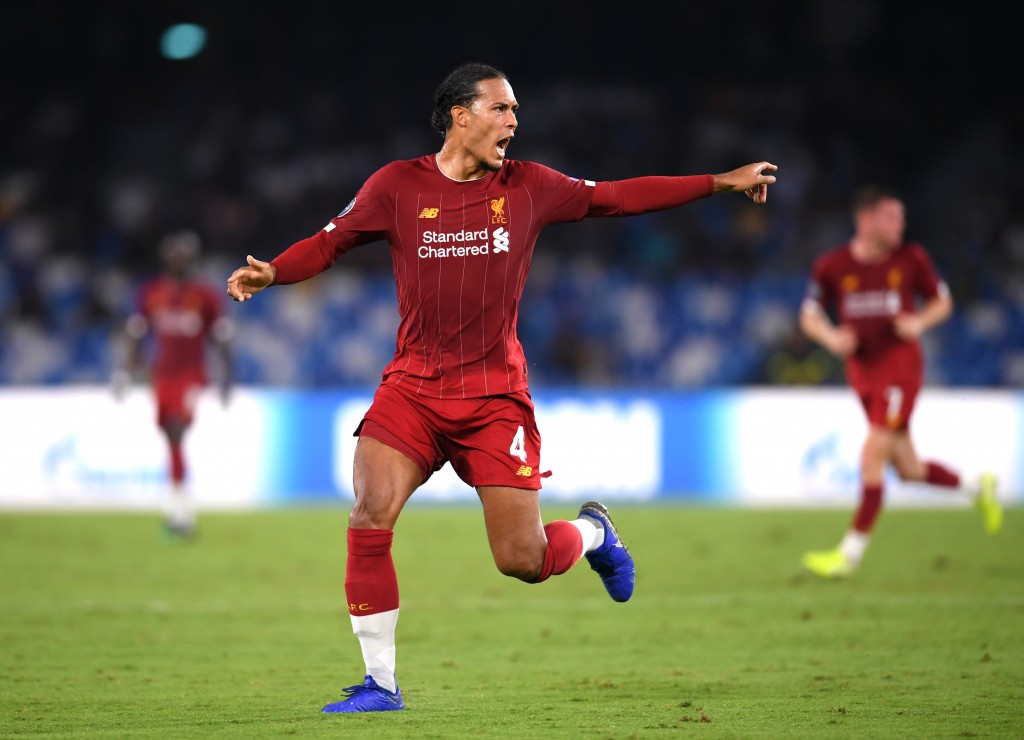
The 28-year-old was named the PFA of the Year last season as well as the Premier League Player of the Season in addition to winning UEFA’s Men Player of the Year for 2018/19 and placed second in the Ballon d’Or race for 2019. However, while van Dijk became a £75 million bargain, he alone has not transformed Liverpool. The other two key factors for them in this run have been Alisson and Fabinho, with their signings facilitated partly by the funds generated by the sale of Coutinho as well.
Let’s head back to May 26, 2018. Liverpool have enjoyed a stunning UEFA Champions League campaign and are in the final against defending champions Real Madrid. Despite losing Mohamed Salah in the first half to a shoulder injury, the Reds have somehow hung on as the game reaches half-time. Then, begins the Loris Karius horror show.
The German, who was arguably one of the best goalkeepers in the Premier League in the 2017/18 season, first allowed Karim Benzema to score the easiest goal of his career after literally handing the ball to him. Then, with the score reading 2-1 in Real Madrid’s favour and with Liverpool still in with a bit of a chance to win their sixth Champions League crown, Karius inexplicably spilled a shot that was swerving but was still straight at him.
This error probably ended up being curtains for him at the club, as Klopp sanctioned the signing of Alisson. And, his impact has been clear, with the Brazilian winning the Golden Glove last season. A repeat of the same feat this term cannot be ruled out and it will be even more impressive, seeing as he has missed nearly a quarter of the season due to injury. One of the best goalkeepers in the world.
As for Fabinho, he has seamlessly slotted in at the base of the midfield, allowing Jordan Henderson to express himself more freely in more advanced positions. At the same time, he has taken some of the pressure off of van Dijk, all while being excellent on the ball, which allows Liverpool to dominate possession. Together, the trio have transformed Liverpool into a defensive force, a wall that cannot be scaled easily, if at all.
The 97-Point Campaign: So Near Yet So Far
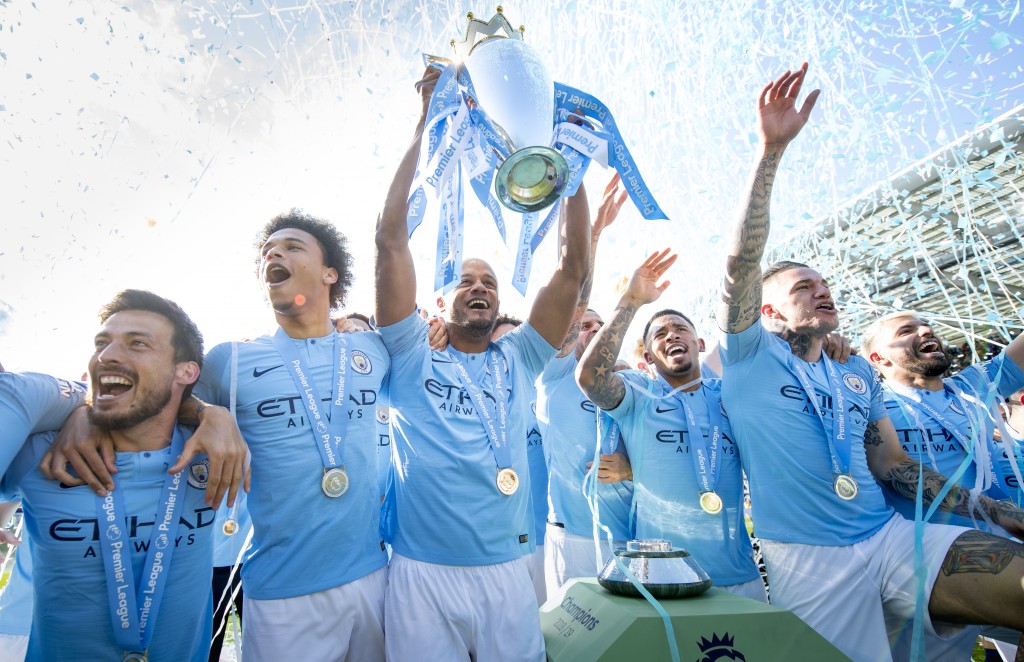
After reaching the Champions League final, it was clear that Liverpool were on the up. Having signed Alisson and Fabinho, they were also now extremely solid, to go with their undoubted prowess in attack. Deriving confidence from a strong 2017/18 season, the Reds started their Premier League campaign strongly, winning each of their first six games.
In fact, Jurgen Klopp’s men were only beaten in the league once and that result proved to be their undoing in the end, as they were defeated by Manchester City at the start of 2019. Four draws in six games in the couple of months that followed ultimately meant that Liverpool fell short of their first title in the Premier League era.
However, Klopp chose to focus on the positives instead of dwelling how his side had come so near and had yet been so far. To begin with, Liverpool never dropped out of the top four and were undefeated at home – they have still not been beaten in a Premier League game at Anfield to this day.
Another big positive for Klopp and his men was the fact that they had gone on to rack up an eye watering 97 points, a tally that would have made them champions in 25 of the previous 26 Premier League seasons. Klopp, and frankly everyone watching Liverpool, knew that if they kept at it, a first league triumph in three decades was certainly well within them. But, one last push remained.
The Champions League Triumph and the End of Underachievement
That push came in the form of Liverpool’s triumphant Champions League campaign last season. Unlike 2018/19, though, the Reds’ campaign in Europe was not without hiccups. This time around, they were nearly counting their days in the competition after suffering a 3-0 defeat at the hands of Barcelona at Camp Nou in the first leg of their semi-final clash.
However, Klopp and his men were not ones to bow out without a fight. Instead, in a tremendous show of character and fighting spirit, the English giants stamped their authority on Barcelona and swatted them away with a 4-0 hammering at Anfield in the second leg, in what was one of their defining moments of 2019.
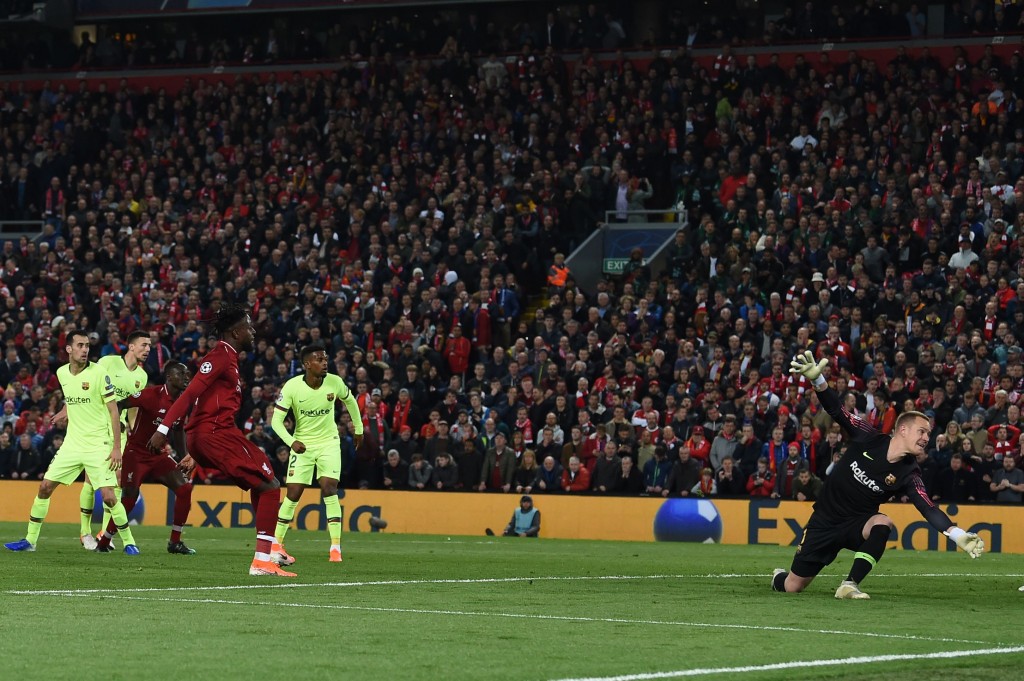
It is interesting to note that Liverpool had been missing star players Mohamed Salah and Roberto Firmino. That did not deter them and instead spurred the players replacing the duo to raise their levels, as Divock Origi famously scored from the corner taken quickly by Trent Alexander-Arnold to send his team to the final.
That final against Tottenham was much much more uncomplicated and nearly effortless, as a 2-0 win meant Liverpool became champions of Europe for an English record-extending sixth time. This Europe-conquering campaign has invariably had a huge effect on Liverpool. No longer were they the nearly men; no longer did the nerves get to them. They finally got to call themselves champions.
Success in the Champions League has created a confident bunch who have swept nearly everything in their path, winning the UEFA Super Cup as well as the FIFA Club World Cup. The icing on top of the cake, though, was to come after a long, and sometimes excruciating, wait.
The Rise of the Mentality Monsters
Liverpool have ridden their luck quite a few times this season. Liverpool fans would themselves admit this. However, such moments have been few and far between. Instead, most of the times, they have created their own luck in games that have been an uncomfortable watch for Klopp, the players and the supporters.
It is often said that the true mark of a champion team is not when they win comfortably, but how they cope when the going gets tough. For years, Sir Alex Ferguson’s Manchester United were renowned for their exploits in such scenarios, at a time when Fergie Time became more than just a way to call out the legendary manager’s supposed influence.
Liverpool FC: 2019/20 Premier League Champions ??
Here’s how Jurgen Klopp’s #LFC side became ‘Mentality Monsters’, as narrated by @bbcjohnmurray
?? Get your sound on for this one
Subscribe to the Football Daily podcast on @BBCSounds ?️⚽️ https://t.co/Vd66i1BLpY pic.twitter.com/irSzQIa6QV
— BBC 5 Live Sport (@5liveSport) June 25, 2020
Klopp’s Liverpool, like any other great side before them, have slowly learnt to snatch wins from the jaws of defeat. The first signs of the same came towards the end of last season, in a run of 9 straight wins, as they came from behind to beat Southampton and Newcastle United, while also holding on to edge past Burnley and Tottenham. Then came the comeback for the ages against Barcelona. The Mentality Monsters were being conceived.
As the 2019/20 season rolled in, Liverpool were winning but not always in the fluent manner that had made them one of the most watchable teams over the past two years. But, the Reds made it a habit to win ugly when they were far from their best, just about getting past Southampton, Chelsea, Leicester City and Tottenham before winning what would be a season-defining game.
No, this was not against Manchester City, but a lowly, newly-promoted Aston Villa. The Midlands club had taken the lead in the first half and were somehow clinging on to the lead as regulation time approached its end. Then, in a stunning seven-minute period till full-time, things turned around dramatically, as goals from Andrew Robertson and Sadio Mane helped complete the comeback.
This never-say-die attitude has helped them rack up countless (not really, but you get the drift) points over the course of the season. A few years ago, such situations would almost certainly end up with defeat for Liverpool, particularly against the smaller teams, who somehow had the number of the Reds.
Not anymore, though, as Klopp’s charges now know how to leave every ounce on the pitch in order to get the job done. Such an outlook has invariably paid off handsomely in the long run, with Liverpool breaking English football’s glass ceiling and now set to lift the Premier League title. The Reds, however, would like to think they are not done yet.
